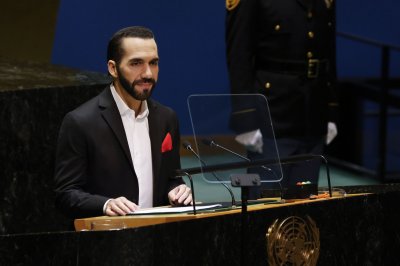El Salvador to introduce Grok tutoring in public schools

Dec. 12 (UPI) — El Salvador has reached an agreement with artificial intelligence company xAI, founded by Elon Musk, to introduce Grok-based tutoring in more than 5,000 public schools, a move President Nayib Bukele’s government describes as the world’s first fully AI-powered national education program.
The initiative, announced this week by the presidency, aims to provide personalized academic support to more than 1 million elementary and secondary school students. Officials said the rollout will take place gradually over the next two years as part of a plan to modernize the education system.
xAI said the partnership will allow students to access Grok, the company’s conversational AI model, adapted to El Salvador’s national curriculum and designed to provide real-time academic support.
“By bringing Grok to every student in El Salvador, we are putting advanced artificial intelligence in the hands of an entire generation,” the company said in a statement reviewed by La Prensa Gráfica.
El Salvador’s Ministry of Education said teachers will remain central to the learning process and will receive training to integrate the technology into classrooms. The ministry said the goal is to use AI to reinforce instruction, expand access to educational resources and reduce gaps between urban and rural areas.
Bukele described the agreement as part of a strategy to position the country as a global innovation laboratory. Local media reported the government views the initiative as an opportunity to “jump straight to the top” technologically, a phrase attributed to the president in recent announcements.
The ministry said Grok will offer adaptive learning experiences tailored to each student’s pace, while the government and xAI develop audit and security protocols to ensure responsible use of the tool in classrooms.
Authorities have not yet detailed the technical infrastructure required for the nationwide rollout, and questions remain about connectivity and device availability in remote areas.
The agreement deepens political and commercial ties between the Bukele administration and companies linked to Musk. El Salvador has previously worked with Starlink to expand internet coverage in rural areas, according to local reports, a move analysts say aligns with the country’s plans to build a technology-oriented economy.
Education specialists cited by Salvadoran media acknowledged the potential to expand access to digital tools but called for transparency as implementation moves forward.
Teachers’ unions and civil society organizations called for oversight mechanisms to ensure data protection, educator participation and equitable access for all students.
If implemented as announced, El Salvador would become the first country to adopt a national AI-based tutoring system, a model that could draw regional interest as several Latin American governments explore digital learning strategies at varying scales.
The presidency said it will release more details on the pilot phase, timeline and teacher training plans in early 2026.
